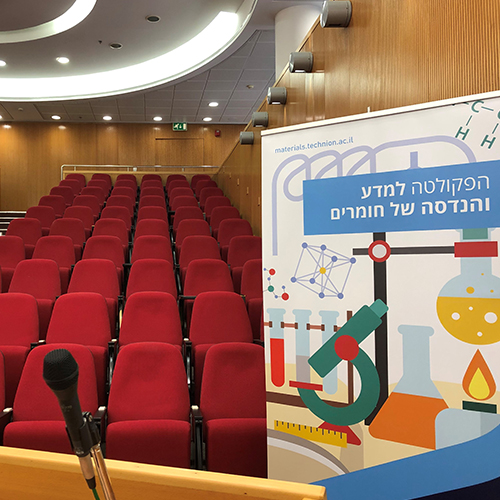
Dr. David Ehre
15/02/2024
David Wang Auditorium, 3rd floor Dalia Meidan Bldg.
14:30
Spontaneous polarization in solids can be viewed as spontaneous surface charge, which is not measurable. Its temperature derivative, the pyroelectric effect is measurable and allows detection and assessment of the spontaneous polarization. Symmetry consideration restricts it to the 10 polar crystallographic classes out of the 32 existing. Disorder in crystal lattice is usually expected to decrease spontaneous polarization as, for instance, it is observed in ferroelectric-to-paraelectric phase transitions. In contrast, anisotropic disorder caused by the displacement of polar entities from their random or symmetry-related positions, known as polar disorder, can give rise to spontaneous polarization.
In this presentation, I provide a brief introduction to the symmetry of solids polar materials and pyroelectricity. I also showcase four examples of systems exhibiting polar disorder:
(I) Polar amorphous thin films, where thermal stress gradients align the polar TiO6 bonding units. (II) Surface pyroelectricity in cubic SrTiO3 resulting from polar surface relaxation. (III) Polar disorder in centrosymmetric amino acid crystals, evolving due to solvent incorporation, such as water. (IV) Pyroelectric effects arising from polar disorder in molecular mixed crystals.
These examples illustrate the diverse manifestations of polar disorder in different materials.


